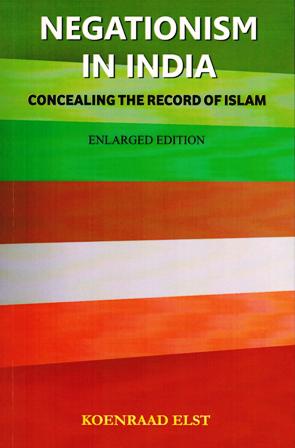Negationism in India: concealing the record of Islam, 2nd enl. edn.
Negationism in India: concealing the record of Islam, 2nd enl. edn. is backordered and will ship as soon as it is back in stock.
Couldn't load pickup availability
Genuine Products Guarantee
Genuine Products Guarantee
We guarantee 100% genuine products, and if proven otherwise, we will compensate you with 10 times the product's cost.
Delivery and Shipping
Delivery and Shipping
Products are generally ready for dispatch within 1 day and typically reach you in 3 to 5 days.
Book Details
-
Author: Koenraad Elst
-
Publisher: ADITYA PRAKASHAN Indological Publishers & Booksellers
-
ISBN 13: 9788185990958
-
ISBN 10: 8185990956
-
Edition: New Delhi
-
Year: 2016
-
Language: English
-
Subject: History
About the Book
In Negationism in India, Koenraad Elst tackles the lesser-known phenomenon of negationism in India, drawing parallels with the denial of the Nazi genocide in Europe. The book critically examines how a section of the Indian intelligentsia has attempted to erase from public memory the history of Hindu persecution by the swords of Islam. Elst argues that the scale of this persecution is comparable to the Nazi crimes, with countless victims falling prey to massacres, forced conversions, the abduction of Hindu women and children, and the destruction of temples.
The book also critiques how Islamic chroniclers and reports of the time express pride in the destruction of Paganism, portraying it as a divine duty. Yet, Elst highlights how modern-day Indian historians, journalists, and politicians are rewriting history to conjure up an image of Hindu-Muslim harmony, ignoring centuries of conflict. Through this essay, Elst aims to shake people out of these delusions by offering a more honest account of the violent history that many are trying to erase.
This work started as an expanded translation of a Dutch-language book review of Sitaram Goel’s Hindu Temples: What Happened to Them, and it provides a thought-provoking analysis of the ongoing denial of historical events.





